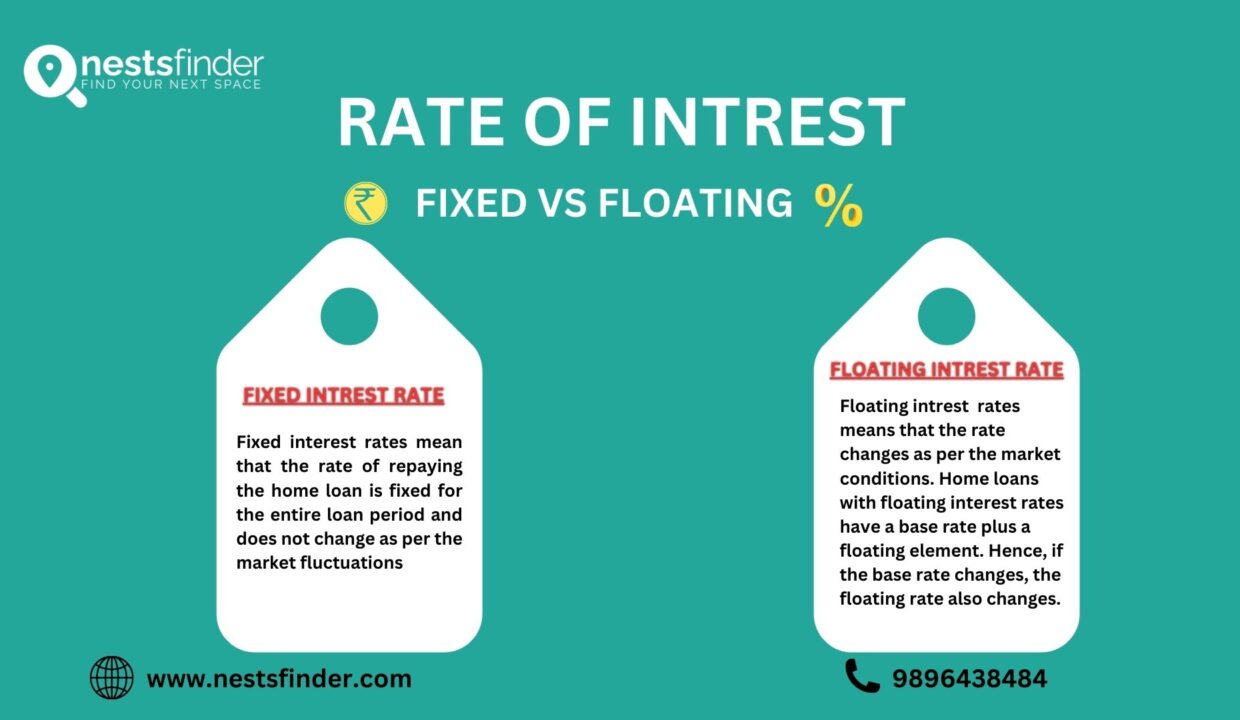Rate of interest : fixed vs floating
#rateofintrest #nestsfinder #propertysearchportal #fixedvsfloating #realestateindia
Rate of interest in Real estate vary depending on many factors, including property type, location, market development, and financing options. In general, interest rates on real estate investment loans are usually higher than interest rates on home loans. Interest rates also depend on the type of loan, such as: Fixed or variable rate mortgages.
Another important factor that affects interest rates on real estate is the prevailing economic conditions in the country or region where the property is located. The Federal Reserve’s interest rate policy can also affect home prices. When interest rates are low, it’s a good time to invest in real estate as borrowing costs are lower and returns can be higher.
Real estate interest rates vary depending on many factors, including property type, location, market trends, financing options, and general economic conditions. It is important to consider these factors when evaluating potential real estate investment opportunities.
Fixed vs Floating Interest Rate In Real Estate
Fixed and floating rates are two common types of interest rates used in real estate loans.
Fixed interest rate: With a fixed interest rate, the interest rate remains the same for the entire period. This means that the borrower’s monthly mortgage payment stays the same, making it easier to budget and plan for the future. Fixed interest rates are usually higher than floating rates, but they offer the borrower a guarantee of predictable payments.
Floating Interest Rates: Floating interest rates, also known as floating interest rates, can fluctuate during the life of the loan based on market conditions. Variable rate loans typically have an initial fixed interest rate for a period of time, after which the interest rate adjusts periodically based on a specific index, such as the prime rate. A variable rate may be lower than a fixed rate at first, but may become higher as interest rates rise.
Borrowers should consider their financial situation, risk appetite and investment objectives when deciding between fixed and floating rate properties. A fixed interest rate is the best option if the borrower wants to ensure consistent payments over the life of the loan. A floating rate may be more appropriate if the borrower can tolerate some risk and wants to take advantage of a lower initial interest rate.
Ultimately, the choice between fixed and variable interest rates depends on the borrower’s individual circumstances and financial goals. It’s important to carefully review all options and understand the pros and cons of each interest before making a decision.
Some Other Types of Interest Rate
- Adjustable Rate Home Loans (ARMs): With adjustable rate home loans, the interest rate may change periodically during the life of the loan depending on market conditions. ARMs often offer lower initial interest rates than fixed-rate mortgages, but can be riskier as interest rates can rise.
- Interest Rate Mortgage: In an interest rate mortgage, the borrower pays only the interest on the loan for a fixed period of time. This may result in lower monthly payments, but the borrower is obligated to pay principal at the end of the interest-only period.
- Balloon Mortgage: A balloon mortgage is a fixed-rate, short-term loan, but the full principal is paid at the end of the loan term. This can be dangerous for borrowers who may not have the funds to repay the full balance at the end of the loan term.
- Bridge Loan: A bridge loan is a short-term loan designed to bridge the gap between the purchase of a new property and the sale of an existing property. Bridge loans tend to have higher interest rates than other types of loans due to their short-term nature and increased risk.
Conclusion
Real estate can be a profitable investment, but it requires careful planning and consideration of various factors. One important factor to consider when investing in real estate is the interest rate on any financing used to purchase the property.
When deciding between fixed and floating interest rates, it is important to consider individual circumstances and financial goals. Borrowers should carefully evaluate all the options and understand the pros and cons of each type of interest rate before making a decision.
Overall, investing in real estate can be a rewarding endeavor, but it requires research, planning, and a long-term outlook.




